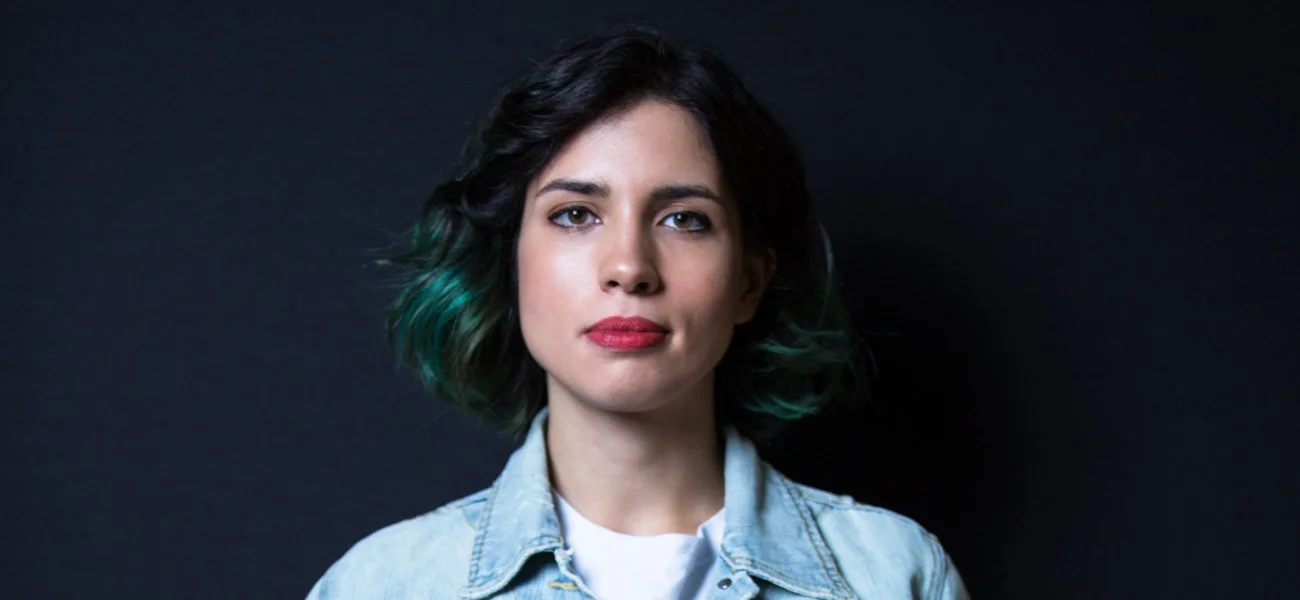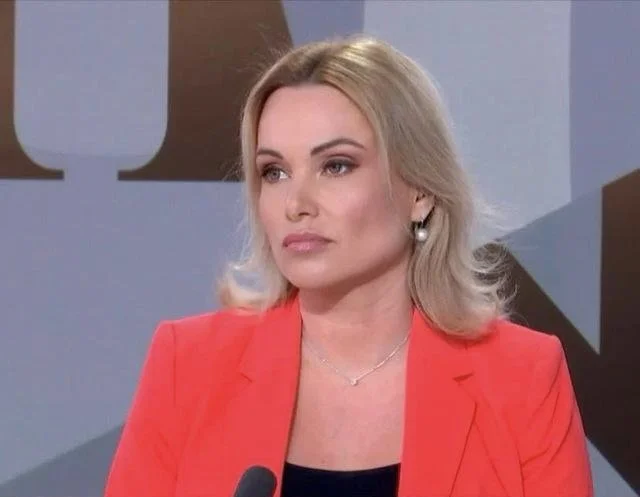Russia after Putin
The World Forum on the Future of Democracy, Tech and Humankind, 18th–19th February 2024, Berlin
Lyubol Sobol
Russian opposition politician
Roman Badanin
Journalist and Researcher, Founder and Editor in chief of Proekt media outlet
Nadya Tolokonnikova
Founder of the group Pussy Riot
Lucy Shtein
Pussy Riot activist and politically persecuted in Russia
Marina Ovsyannikova
Russian Journalist
David Isteev
Crisis Response Coordinator,
The Russian LGBT Network
Keynote speaker:
Lyubov Sobol, Russian opposition politician, lawyer and a member of the Russian Opposition Coordination Council
Panellists:
Lyubov Sobol, Russian opposition politician, lawyer and a member of the Russian Opposition Coordination Council
Marina Ovsyannikova, Russian Journalist
Lucy Shtein, Pussy Riot activist and politically persecuted in Russia
David Isteev, Crisis Response Coordinator, The Russian LGBT Network
Nadya Tolokonnikova, Russian musician, conceptual artist, and political activist. Founding member of the feminist group Pussy Riot
Moderator: Roman Badanin, Journalist and Researcher, Founder and Editor in chief of Proekt media outlet
Call for action:
Identify ten potential leaders and support them:
Promoting non-violent resistance as a powerful tool for effecting change is crucial in the fight against authoritarianism. Inspired by the legacies of activists like Alexei Navalny and movements such as Hong Kong's "Umbrella Movement," adopting peaceful and strategic approaches can be profoundly effective. These movements involve meticulous planning and perseverance, including tactics like sit-ins and peaceful marches. Occupying key areas and maintaining a non-violent stance, despite significant challenges from authorities, not only garners international attention but also galvanizes support for democratic reforms.
Support independent Russian Journalists and media:
Democratic countries should support independent media outlets, journalists, and reporters who face censorship, intimidation, or financial pressures, ensuring the public's right to access accurate information and diverse perspectives.
More sanctions on the authoritarian regime who violate human rights:
Urge governments, international organizations, and civil society to maintain consistent attention and action on human rights abuses, especially in regions like Chechnya and areas under authoritarian control, through diplomatic pressure, sanctions, and support for affected communities.
The European Union's imposition of sanctions on individuals involved in abuses in countries like Myanmar demonstrates the international community's stance against such atrocities.
Video
VIDEO GOES HERE
Main outcomes:
Necessity for a consistent fight against all the authoritarian regimes. Consistency and sustainability are the only key to obtaining results.
Emphasis on continuing the struggles and legacies of figures like Alexei Navalny and others through non-violent resistance and hope.
Recognition of the courage and persistence of human rights defenders and activists around the world despite facing imprisonment, torture and even death. Same recognition must be acknowledged to who decides to secure himself from these tortures and chooses a different path to fulfil the struggle.
Call for more careful and consistent attention and action from the International community, especially in places like Chechnya and all the territories controlled by Russia.
Panel discussion summary
Moderated by Roman Badanin, an exiled Russian journalist and founder of Proekt media outlet, the panel featured prominent dissidents from Russia, including Lyubov Sobol, an opposition politician and lawyer; Nadya Tolokonnikova, a musician and political activist; Marina Ovsyannikova, a journalist; Lucy Sthein, a Pussy Riot activist; and David Isteev, a crisis response coordinator for the Russian LGBT Network.
The discussion delved into the pervasive impact of Putin's authoritarian regime on Russia, including political repression, erosion of civil liberties, centralization of power, and corruption. With the recent death of Alexei Navalny, a prominent opposition leader and anti-corruption activist, just three days prior to the panel, the conversation also explored the uncertain political and social landscape in Russia after Putin.
The panel began with a moment of silence to honor Navalny and all victims of Putin's regime. Lyubov Sobol articulated a vision for a post-Putin Russia characterized by freedom of speech, equal rights, fair elections, and a legal system built to serve the people. She drew inspiration from countries like Estonia and Poland that have successfully transitioned to democratic states.
Nadya Tolokonnikova encouraged young Russians to find ways to contribute to the fight against Putin's regime, whether through activism within the country or by seeking refuge abroad. She emphasized the importance of sustainability in their efforts to avoid burnout.
Lucy Sthein, a municipal deputy in Moscow, described her approach to fighting Putin's regime within the legal framework of the country as a "political legal struggle." She highlighted the need to raise awareness about atrocities, such as mass killings and torture in Chechnya, and to combat propaganda.
David Iseev advocated for the necessity of the struggle to bring attention to mass killings and tortures happening in Chechnya and to avoid the spread of these atrocities in other territories. David and Lucy both work as crisis response coordinator to help LGBT people flee Chechnya.
Maryna Ovsyannikova focused on the challenges faced by Russian journalists, noting that many are fearful of speaking out against the regime due to financial repercussions. She described them as hostages of Putin's regime, striving to protect themselves and their families.
Overall, the panelists offered diverse perspectives on the future of Russia after Putin and emphasized the importance of continued activism, awareness-raising, and international solidarity in challenging authoritarianism and promoting democratic values.






